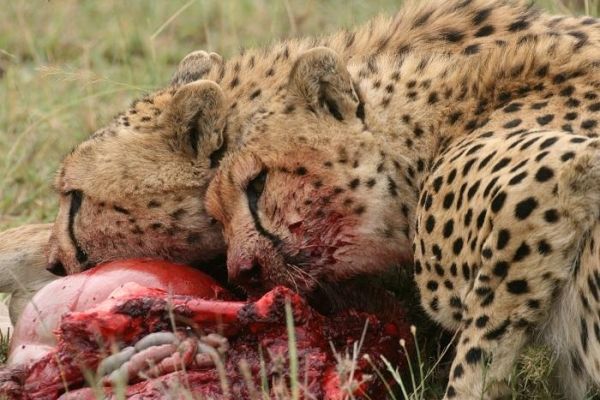
Cheetahs in the Serengeti National Park adopt different Two male cheetahs eat a killstrategies while eating to deal with threats from top predators such as lions or hyenas. A new study in Springer’s journal Behavioral Ecology and Sociobiology shows that male cheetahs and single females eat their prey as quickly as possible. Mothers with cubs, on the other hand, watch out for possible threats while their young are eating in order to give them enough time to eat their fill. The research was led by Anne Hilborn of Virginia Tech’s College of Natural Resources and Environment in the US.
>> Read the Full Article

 ENN
Environmental News Network -- Know Your Environment
ENN
Environmental News Network -- Know Your Environment